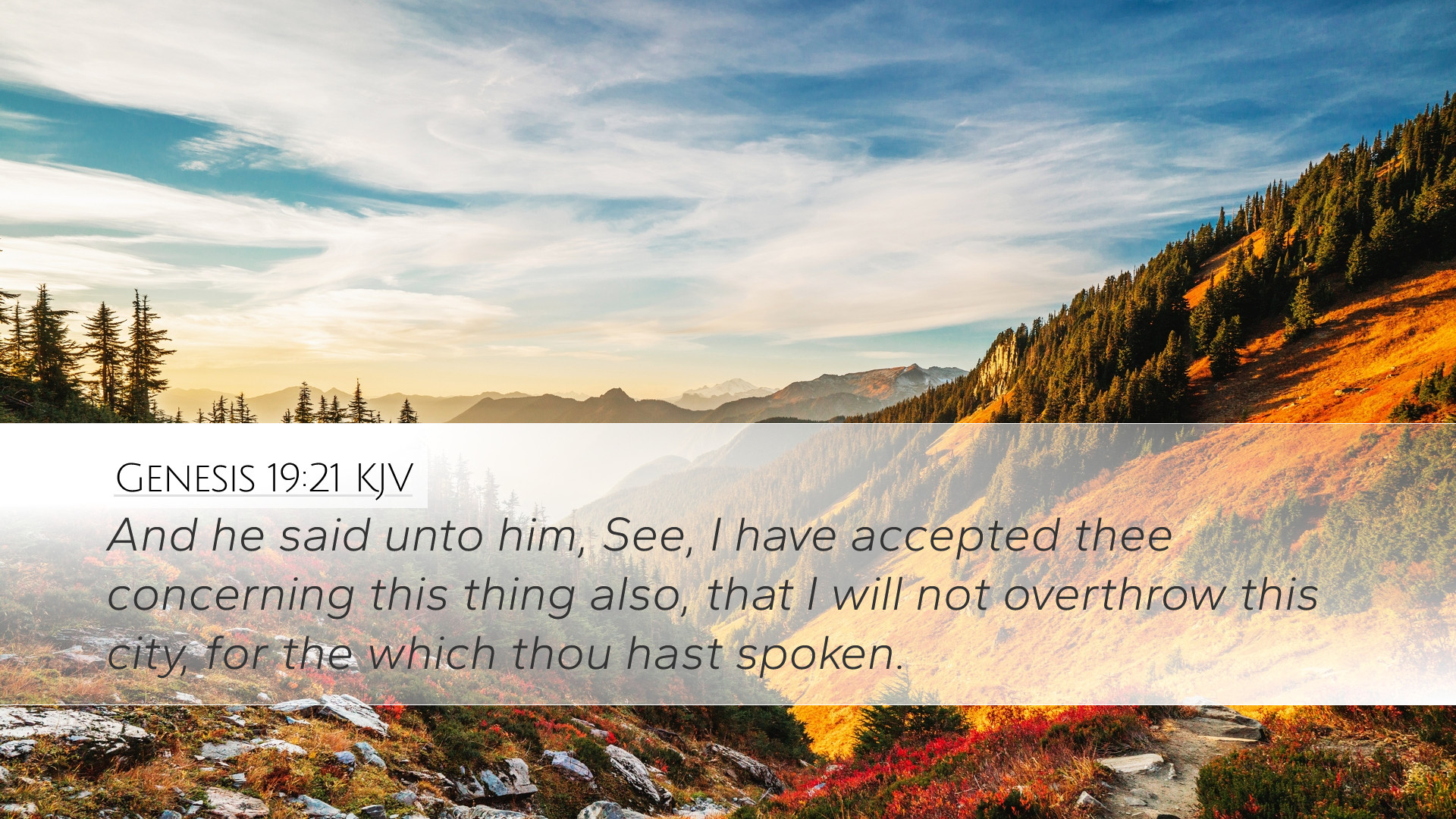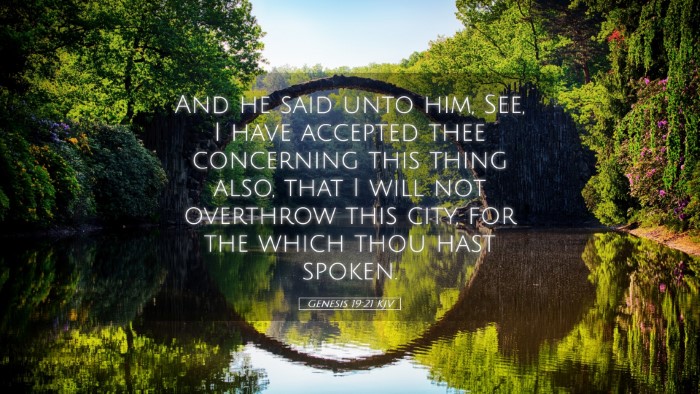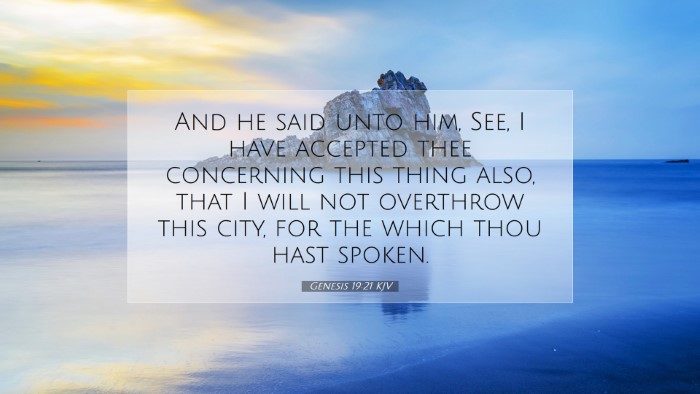Genesis 19:21 - Bible Commentary Overview
Verse Context:
Genesis 19:21 falls within the narrative of the destruction of Sodom and Gomorrah, focusing on Lot's plea for mercy and God's response. This verse reads:
"And he said unto him, See, I have accepted thee concerning this thing also, that I will not overthrow this city for the which thou hast spoken."
Exegesis and Theological Insights
The narrative of Genesis 19 is pivotal, illustrating themes of divine judgment, mercy, and the righteous amidst wickedness. Lot, Abraham's nephew, finds himself in a critical situation as the impending judgment of Sodom looms. In verse 21, the dialogue reveals God’s willingness to alter His plans in response to Lot’s request, showcasing both His sovereignty and mercy.
1. The Character of God
God's Mercy: This verse demonstrates a profound aspect of God’s character: His mercy. Despite the overwhelming wickedness of Sodom, Lot’s plea brings forth an unexpected response from God, who is willing to spare the city—albeit limited to the grace extended to Lot and his family.
God’s Sovereignty: While God is compassionate, His sovereignty remains intact. The decision to save Lot and grant the request reflects the divine prerogative in administering justice. As emphasized by Matthew Henry, it shows that God’s governance over creation does not diminish His ability to respond favorably to the intercessions of the righteous.
2. The Role of Intercession
Lot as an Intercessor: The narrative draws parallels to Abraham's earlier intercession for Sodom in Genesis 18. While Lot's intercession appears less public than Abraham's, it nonetheless exemplifies the principle of intercessory prayer. Albert Barnes notes that the notion of pleading for a city indicates the potential for repentance and redemption, reinforcing the importance of standing in the gap for others.
3. Theological Implications for Salvation
This verse has significant implications for understanding salvation. The sparing of Lot symbolizes the overarching theme of God’s desire to save the righteous from impending judgment. Adam Clarke remarks that Lot represents a believer in a perverse generation, and God's response serves as an assurance that He will not forsake the faithful amidst destruction.
Practical Applications for Leadership
Pastors and church leaders can draw valuable lessons from this account:
- The Power of Prayer: Just as Lot interceded, it is crucial for leaders to cultivate a lifestyle of prayer, advocating for their communities and members.
- God’s Response to Faithfulness: Faithfulness in difficult circumstances can lead to divine favor, and leaders should encourage their congregations with stories of hope found in adversity.
- Engagement with the Culture: There is a cry for local churches to engage with today’s cultural sinfulness while remaining steadfast in their mission to witness for Christ.
Conclusion
In summary, Genesis 19:21 serves as a profound reminder of God’s mercy and the power inherent in intercessory prayer. It challenges believers to remain faithful in the midst of a corrupt society, prompting them to pray earnestly for others. The insights garnered from public domain commentaries underscore the richness of scripture, inviting deeper reflection on the multifaceted nature of God and His dealings with humanity.


